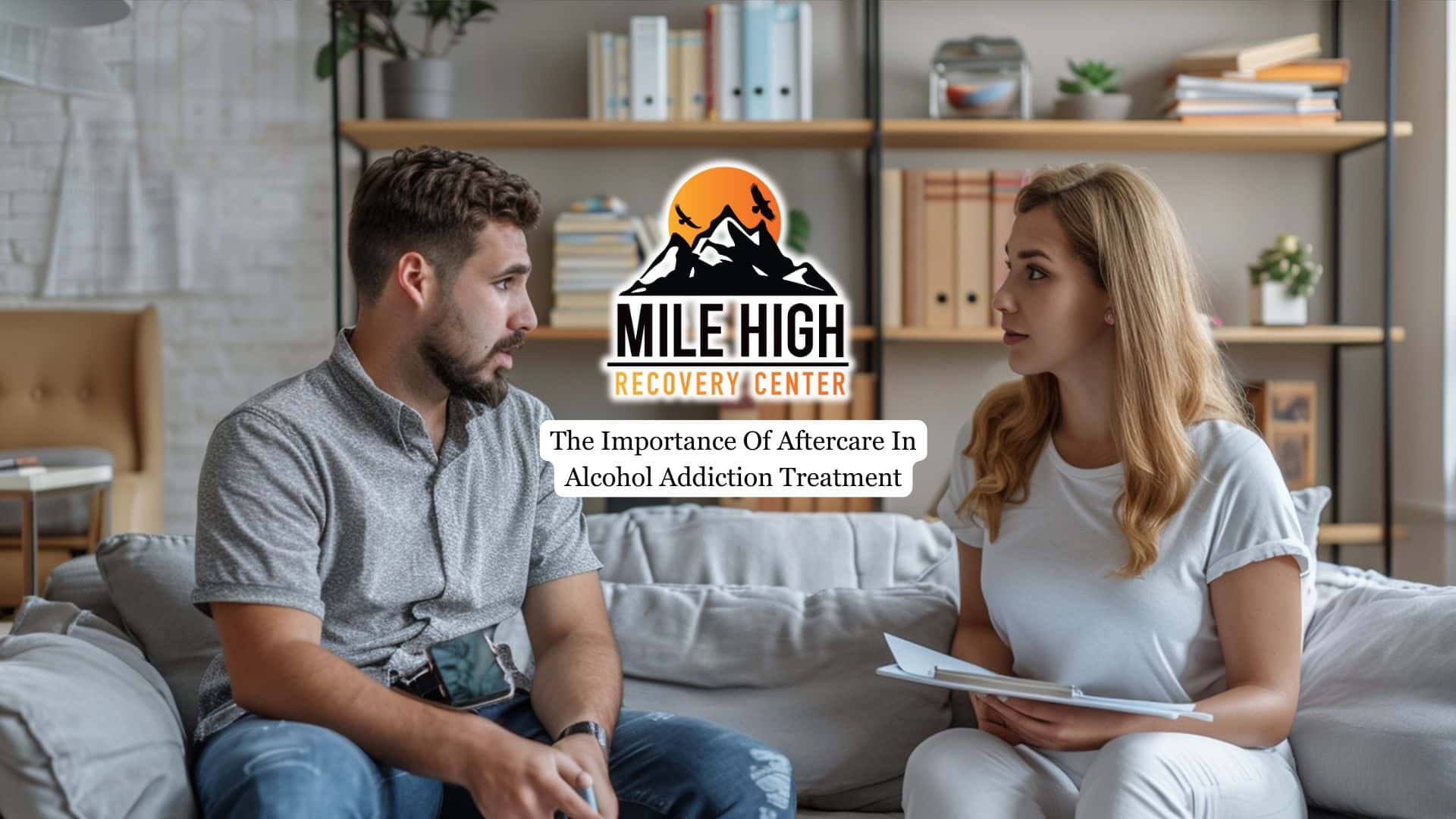The journey to recovery from alcohol addiction doesn’t end when a person completes a rehab program. Aftercare plays a vital role in supporting long-term sobriety and preventing relapse by providing ongoing support and treatment beyond the initial phase of addiction treatment.
This article will look into the importance of aftercare in addiction recovery, the types of aftercare programs available, and how a personalized aftercare plan helps people in recovery maintain their progress and build a fulfilling, sober life.

What Is Aftercare in Addiction Treatment?
Aftercare, also known as continuing care, is a critical component of addiction recovery that begins once a person completes residential addiction treatment or an outpatient program. It serves as a bridge between the structured environment of a treatment center and the challenges of everyday life.
The goal of aftercare is to solidify the gains made during rehab, support ongoing sobriety, and provide relapse prevention strategies tailored to each individual’s needs. Because addiction is a chronic, relapsing condition, aftercare helps manage substance use disorder as a long-term health issue requiring ongoing support.
Relapsing while in recovery should be addressed with the help of experts in the proper setting of a relapse prevention program, which helps individuals work through sobriety hardships in a productive manner.
Why Aftercare Is Important in Addiction Recovery
Studies show that between 40% and 60% of people recovering from drug or alcohol addiction experience relapse at some point, often within the first few months after completing treatment.
Aftercare helps reduce this risk by offering continuous support to help individuals stay sober and manage triggers, cravings, and stressors that arise during recovery. Without aftercare, people in recovery often face a sudden loss of structure and support, increasing their vulnerability to relapse.
Aftercare therapy provides a safe space where people can continue therapy sessions, engage in peer support groups, and access resources that promote mental health and emotional well-being. It also helps address co-occurring substance abuse and mental health conditions, which are common among those struggling with addiction.
Key Components of Aftercare Programs
Effective aftercare plans are personalized to address the unique needs of each individual in recovery. Aftercare programs often include ongoing individual and group therapy sessions, including cognitive behavioral therapy (CBT) and other behavioral therapies, which help reinforce coping skills and relapse prevention strategies.
Peer support groups like Alcoholics Anonymous (AA), 12-step meetings, and SMART Recovery provide a sense of community and accountability. Family therapy plays a crucial role in rebuilding relationships and strengthening social support networks. When appropriate, medication management—including addiction medicines like naltrexone—is incorporated to support recovery.
Many programs also offer sober living homes or recovery housing, providing a structured, drug- and alcohol-free environment that eases the transition back to independent living. Educational workshops and life skills training help promote healthy lifestyle changes and personal growth. Regular check-ins with treatment providers ensure progress is monitored and aftercare plans are adjusted as needed to best support long-term sobriety.
Types of Aftercare and Continuing Care Options
Aftercare in addiction treatment varies widely depending on individual needs and the level of care required. Common types of aftercare include step-down programs, which involve transitioning from inpatient rehab to less intensive settings such as an intensive outpatient program (IOP) or a partial hospitalization program (PHP).
Outpatient treatment programs allow individuals to maintain daily responsibilities while continuing to receive therapy and support. Support groups and sober living environments also play a crucial role by providing ongoing peer support and a structured, drug- and alcohol-free setting that helps people stay sober.
Technology-assisted aftercare, including mobile apps and telehealth services, offers remote engagement and resources to enhance recovery.

Benefits of Aftercare in Sustaining Long-Term Recovery
- Provides ongoing support to help people manage triggers and avoid relapse.
- Fosters connection with peers and professionals, reducing isolation and promoting accountability.
- Encourages personal growth and the development of new, healthy habits.
- Helps repair and strengthen family and social relationships.
- Empowers individuals to take control of their recovery journey and build a meaningful, sober life.
Creating an Effective Aftercare Plan
The aftercare plan should be tailored to an individual’s unique needs and circumstances, providing ongoing support, structure, and resources to prevent relapse.
Key elements include regular attendance at therapy sessions or support groups, ongoing communication with a sponsor or mentor, and the identification of personal triggers and coping strategies.
Aftercare may involve setting achievable goals, maintaining a healthy lifestyle through balanced nutrition and exercise, and developing a strong social support network.
Proactive monitoring—such as check-ins with counselors and adjustments to the plan as needed—helps ensure continued progress.
Final Thoughts from Mile High Recovery
Addiction is a chronic condition that requires ongoing management, and aftercare provides the essential support and structure needed to maintain sobriety and prevent relapse. By participating in an effective aftercare program tailored to their unique needs, people in recovery can strengthen their mental health, rebuild relationships, and enjoy long-term addiction recovery.
Mile High Recovery’s addiction treatment programs in Denver, CO focus on long-term success by providing personalized aftercare plans, fostering strong community connections, and delivering continuous clinical support. This comprehensive approach not only addresses substance use but also focuses on rebuilding various aspects of life, such as relationships, employment, and emotional well-being







